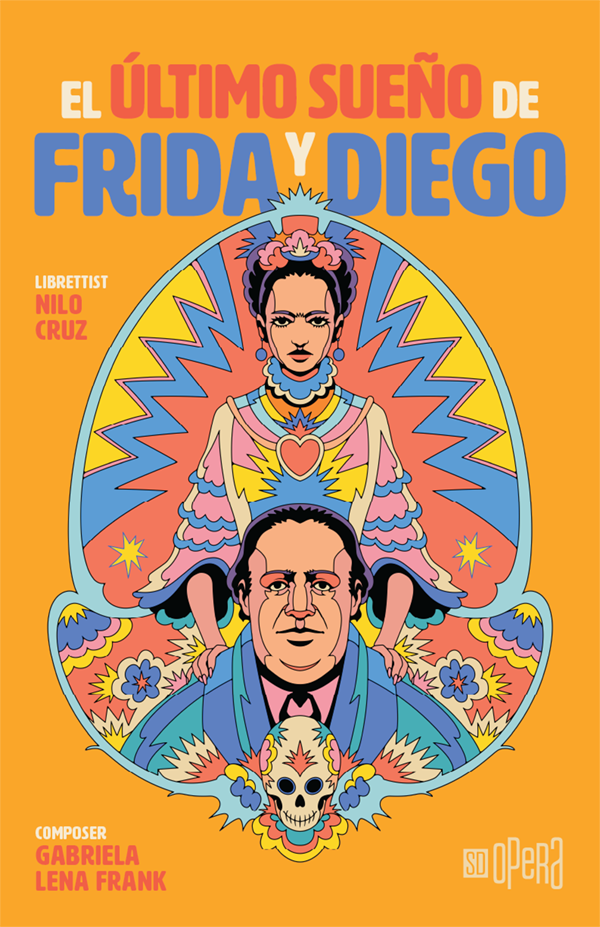
El último sueño de Frida y Diego

The Conrad Prebys Foundation
Fall Season Sponsor
Karl and Greet Hostetler
Commission and Production Sponsors
Lee and Frank Goldberg
Lead Production Sponsors
Gabriela Lena Frank – Composer
Nilo Cruz – Librettist
San Diego Civic Theatre
1100 Third Avenue
San Diego, CA 92101
KNOW BEFORE YOU GO. Answers to your most frequently asked questions about attending the opera.
ARRIVE EARLY! Join us starting 90 minutes before each performance on the plaza directly in front of the Civic Theatre for live music, a community altar, a Frida and Diego inspired photo contest, food vendors and more.
We are honored to present the world premiere of this beautiful opera.
The 2022-2023 season begins with great fanfare with the world premiere of El último sueño de Frida y Diego (The Last Dream of Frida and Diego) by Grammy Award–winning composer Gabriela Lena Frank and Pulitzer Prize–winning librettist Nilo Cruz. Frida Kahlo and Diego Rivera have inspired generations of artists and this new opera explores the relationship between these two great Mexican visionaries.
During the celebration of Día de muertos (Day of the Dead), surrounded by candles and the fragrance of marigolds, the great muralist Diego Rivera longs to see his deceased wife Frida Kahlo once more. Catrina, the keeper of the souls, approaches Frida in the afterlife, and explains that Diego desperately needs his beloved wife as the end of his life approaches. For only 24 hours, Frida and Diego will relive their tumultuous love through their paintings and embrace the passion they shared.
Featuring an international cast of stars including mezzo-soprano Guadalupe Paz as Frida, baritone Alfredo Daza as Diego, soprano Maria Katzarava as Catrina, and countertenor Key’mon Murrah as Leonardo. Directed by Lorena Maza and with the San Diego Symphony conducted by Roberto Kalb.
This opera is a co-commission with San Francisco Opera, Fort Worth Opera, DePauw University School of Music, and with support from The University of Texas at Austin College of Fine Arts. Co-production with San Francisco Opera.
LANGUAGE – Sung in Spanish with English/Spanish text projected above the stage
RUN TIME – 2 hours and 15 minutes, including one 20-minute intermission
Pre-Opera Lecture
The pre-opera lecture begins at 6:40 pm before the 7:30 pm evening performances. The Sunday matinee pre-opera lecture begins at 1:10 pm before the 2:00 pm curtain.
Mainstage Post-Opera Talk-Back
Stay after the performance for a Talk-Back. Once the curtain falls, there will be a 10-minute break, then join us in the front of the Dress Circle section where you can ask questions of the stars and cast (subject to availability), and find out what really happened onstage and backstage during the performance!
Meet The Cast
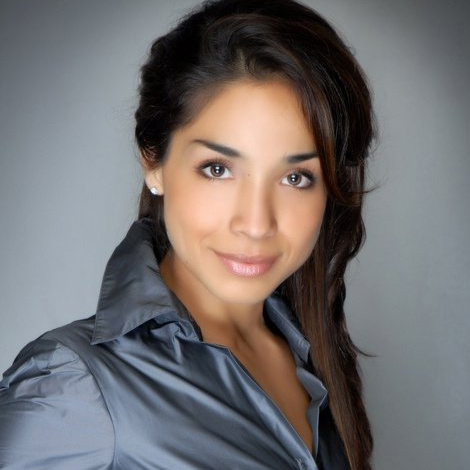
Guadalupe Paz
Frida

Guadalupe Paz
Frida
Mezzo-soprano Guadalupe Paz made her Company debut as Mercedes inCarmen in 2019. Notable appearances include Melibea in Il Viaggio a Reims and Hansel in Hansel and Gretel with Bellas Artes National Opera, Rosina in The Barber of Seville and Angelina in Cinderella with Teatro del Bicentenario and Bellas Artes National Opera, Isolier in Le Comte Ory with the Philharmonic Orchestra of Jalisco, and Maddalena in Il Viaggio a Reims at the Rossini Opera Festival. Her concert repertory includes Glagolitic Mass at the International Cervantino Festival, Ode to Common Things with La Jolla Symphony and Chorus, Tres Canciones para Orquestra y Mezzosoprano at International Festival Instrumenta, and Seven Deadly Sins at the Aspen Music Festival.
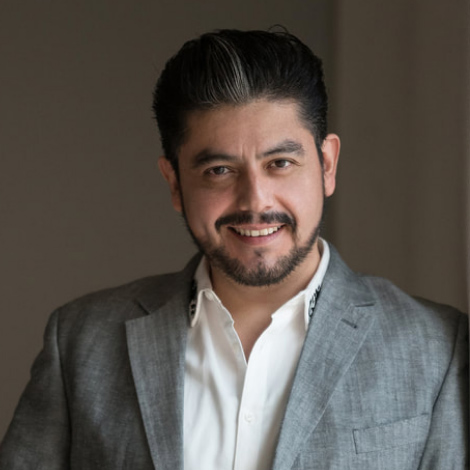
Alfredo Daza
Diego

Alfredo Daza
Diego
San Diego Opera debut. Notable debuts include Stankar in Stiffelio, Francesco Moor in I masnadieri with Konzerthaus Berlin, Rodrigo in Don Carlo with Staatsoper Berlin, Ford in Falstaff with Staatsoper Berlin, Staatsoper Hamburg, and Teatro Communale di Bologna, and Renato in A Masked Ball with Staatsoper Berlin. His interpretation of Giorgio Germont in La traviata, for unter den Linden brought him to Staatsoper Hamburg and the Tokyo National Theatre where he sang the part in a production directed by Phillip Boussard and conducted by Yves Abel. Other notable appearances include Paolo Albiani in Simone Boccanegra with Placido Domingo in the main role and Daniel Barenboim in the pit. He also appeared as Scarpia in Tosca at Theater St Gallen. He started his vocal studies at the Puebla Conservatory in Puebla (Mexico) at the age of 12. Later he continued studying in the Mexico City Conservatory. The Mexican baritone started his international career as an Adler Fellow in San Francisco Opera’s world renown young artists program at the age of 21. Shortly after his fellowship he debuted in several theaters of North America and Europe including Schaunard in La bohème at San Francisco Opera, Theatre de la Monnaie in Brussels, and Canadian Opera Company, Valentin in Faust at the Teatro Carlo Felice in Genua, and as Dandini in La Cenerentola at the Teatro dell’Opera di Roma. For Washington National Opera he sang Marcello in La bohème and the title role of The Barber of Seville, which became one of his most celebrated roles. He also performed Marcello at New York City Opera. As Ford in Falstaff he appeared at the Teatro Communale di Bologna and Staatsoper Hamburg conducted. As a baritone of the ensemble of the Staatsoper Berlin he has sung roles such as Almaviva in The Marriage of Figaro, Guglielmo in Cosí fan tutte, Belcore in The Elixir of Love, Figaro in The Barber of Seville, Prosdocimo in Il turco in Italia, Yeletzki in Pique dame, the title role in Hans Zender’s world premiere of Chief Joseph, Marcello, Sharpless in Madama Butterfly, Ping in Turandot, Lescaut in Manon, Valentin Ford, Germont, and Conte di Luna in Il trovatore. Recordings include DVD of La bohéme (as Marcello) with the New York City Opera, The Elixir of Love DVD (Belcore) with the Glyndebourne Festival for OPUS ARTE, the albums Stolen Notes Verdi Arias and Angel & Demon, and the DVD of Massenet’s Manon as Lescaut with the Staatsoper Berlin.
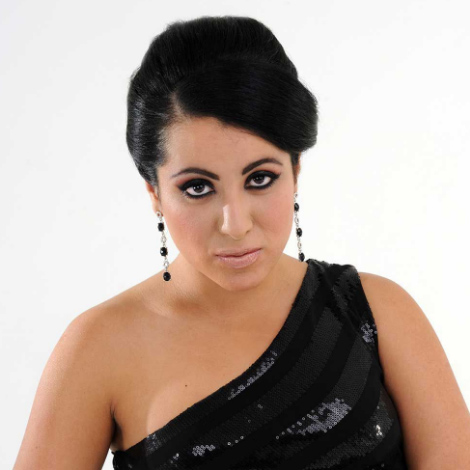
Maria Katzarava
Catrina

Maria Katzarava
Catrina
San Diego Opera debut. Soprano Maria Katzarava is the 2008 winner of Operalia in the Opera and Zarzuela category. Other awards include Oscar della Lirica (Arena di Verona, 2010) and Miami Life Award. The Mexican soprano has already sung in some among the world’s leading theaters, including ROH Covent Garden in London, Teatro alla Scala in Milano, Opéra de Lausanne, Florida Grand Opera, Teatro Filarmonico in Verona, Grand Théâtre de Genève, Teatro San Carlo di Napoli, Teatro Petruzzelli di Bari, Teatro Liceu in Barcelona, Teatro Regio di Parma, working with such conductors as Zubin Mehta, Donato Renzetti, Daniel Oren, Michele Mariotti, Gustavo Dudamel and Daniele Callegari. In 2010 she made her Royal Opera House London debut as Juliette in Roméo et Juliette. In the same role she triumphed at Teatro alla Scala in Milan, Opéra de Lausanne, Florida Grand Opera, Teatro Filarmonico in Verona, St. Étienne and in Moscow. Other notable performances include Gilda in Rigoletto during a Japan tour with Teatro alla Scala; Desdemona in Otello for her debut at Liceu de Barcelona; La traviata at Grand Théâtre de Genève and at Florida Grand Opera; La Muette de Portici by Daniel Auber and I pagliacci at Teatro Petruzzelli in Bari, Amelia d’Egmont in Le Duc d’Albe at Opera de Oviedo; Leonore in Fidelio at Opera Carolina in Charlotte, Antonia, Stella and Giulietta in The Tales of Hoffmann in Piacenza, Modena and Reggio Emilia, Micaëla in Carmen at Teatro Carlo Felice di Genova, Liù in Turandot at Teatro Lirico di Cagliari and at Terme di Caracalla with Opera di Roma, Madama Butterfly and Carmen at Massimo in Palermo, Carmen at Teatro Comunale di Bologna, Stiffelio at Festival Verdi in Parma in a new production staged by Graham Vick, Elisabetta in Don Carlo at Palau de les Arts de Valencia alongside Placido Domingo, Amelia in Simon Boccanegra at Opéra de Lausanne, Aida at Royal Opera Stockholm, among others.
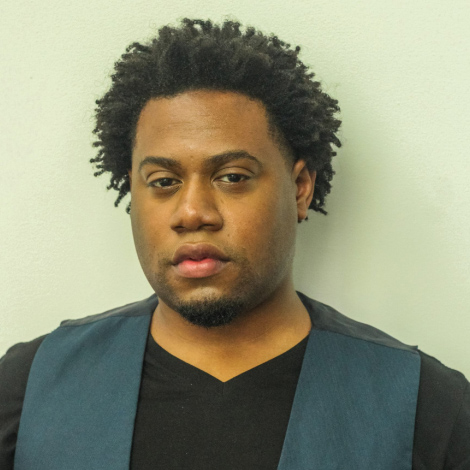
Key'mon Murrah
Leonardo

Key'mon Murrah
Leonardo
San Diego Opera debut. Countertenor Key’mon Murrah has been heard with University of Kentucky Opera Theatre and Bluegrass Opera in performances of Die Fledermaus, The Magic Flute, Tales of Hoffman, and La bohéme. His most notable roles are Mingo in Porgy and Bess and creating the role of the Spiritual Man in Ernst Bacon’s A Tree on the Plains and has sung the role of Tolomeo from Handel’s Giulio Cesare with Red River Lyric Opera and Asprano in Vivaldi’s Montezuma with America Baroque Opera Company. Murrah was recently featured in a Masterclass with Joyce DiDonato in for Carnegie Hall’s Weill Music Institute and continued his studies at the International Vocal Arts Institute. In 2009 Murrah received the Second Place Undergraduate Award at The Alltech Vocal Competition, and in 2010 he won the second-place award at the National Association of Negro Musicians and Bellarmine’s University’s “Traditional Negro Spiritual’ Voice Competition. In 2014, Murrah was a finalist in the Juanita Peterson Vocal Competition, won 2nd place at the Emerging Soloists Competition, and was a finalist in the Opera MODO Opera Competition. Recently, Murrah toured with the American Spiritual Ensemble and in the summer of 2020, he was a young artist with the Glimmerglass Opera Festival.
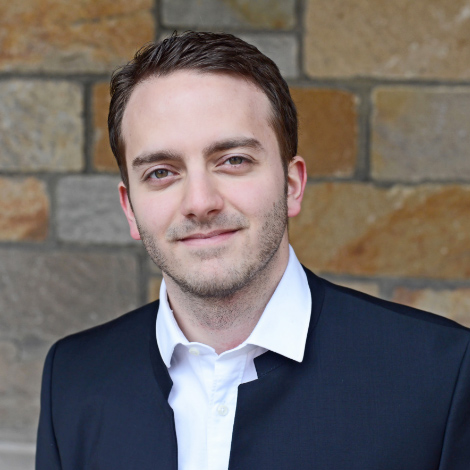
Roberto Kalb
Conductor

Roberto Kalb
Conductor
San Diego Opera debut. Mexican-born conductor Roberto Kalb makes multiple debuts in the 2022-2023 season, including with San Francisco Opera, Compañía Nacional de Ópera and at the Palacio de Bellas Artes in Mexico City. The 2021-2022 season marked a debut with the Opéra Orchestre National Montpellier, as well as return collaborations with Wolf Trap Opera and the National Symphony Orchestra for La traviata, and Opera Theatre of Saint Louis, for the world premiere of Tobias Picker’s Awakenings. In 2019, Kalb concluded his five-season tenure as resident conductor and head of music at Opera Theatre of Saint Louis with a critically acclaimed run of Rigoletto in collaboration with the Saint Louis Symphony Orchestra, which Opera News lauded: “The orchestra sounded sublime under the baton of Roberto Kalb, whose buoyant conducting simultaneously led and followed the singers.” Additional highlights include productions at the Michigan Opera Theatre, Florida Grand Opera, Tulsa Opera, Kentucky Opera, Opera Maine, as well as performances with the Orquesta Carlos Chavez in Mexico City, and the Orquestra Sinfonica da USP in São Paulo. Kalb also worked as cover/assistant conductor for the Detroit Symphony Orchestra, and the Canadian Opera Company in Toronto. Kalb is one of the recipients of the 2021 Solti Foundation U.S. Career Assistance Awards. He holds degrees from the University of Michigan, and the San Francisco Conservatory of Music, and currently resides in Berlin, Germany with his wife, soprano Mane Galoyan.
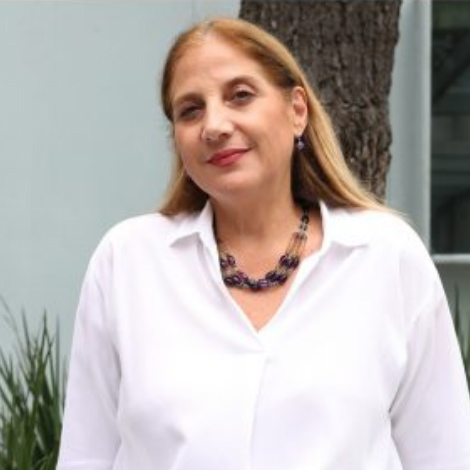
Lorena Maza
Director

Lorena Maza
Director
San Diego Opera debut. Born in Mexico City, stage director Lorena Maza has directed more than 50 plays, 5 operas and 5 musicals. She has been director of Mexico’s National Theater Company, director of Teatro Helenico and of Teatro UNAM, where she managed 3 venues and produced 35 plays a year. She has been an acting teacher for more than 20 years, in the Faculty of Philosophy and Letters at the National University of Mexico as well as at CUT – UNAM. She has been recognized with 11 awards for best direction and best play of the year. With her work she has participated in 6 national and international festivals; has translated more than 40 dramatic texts, and was the translator for National Theater LIVE. In the private sector, she founded and directed the Ocesa theater department of Grupo CIE, producing his first musical Disney’s Beauty and the Beast, with more than 650,000 spectators. She wrote, directed and co-produced Bésame Mucho, Ocesa’s first original musical with more than 500 performances and 350,000 spectators. In 2017, she opened her own production company, 19TEATRO, together with other theater professionals.
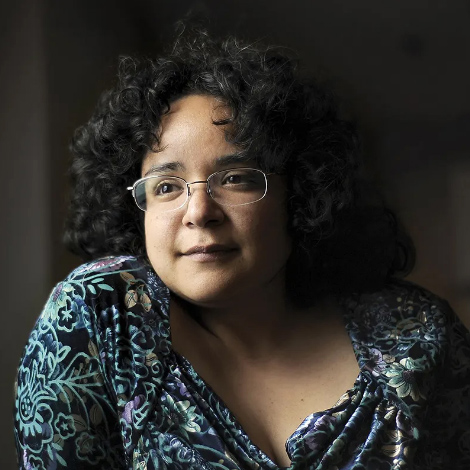
Gabriela Lena Frank
Composer

Gabriela Lena Frank
Composer
San Diego Opera debut. Currently serving as Composer-in-Residence with the storied Philadelphia Orchestra and included in the Washington Post‘s list of the 35 most significant women composers in history (August, 2017), identity has always been at the center of composer/pianist Gabriela Lena Frank’s music. Born in Berkeley, California (September, 1972), to a mother of mixed Peruvian/Chinese ancestry and a father of Lithuanian/Jewish descent, Gabriela explores her multicultural heritage through her compositions. Inspired by the works of Bela Bartók and Alberto Ginastera, Gabriela has traveled extensively throughout South America in creative exploration. Her music often reflects not only her own personal experience as a multi-racial Latina, but also refract her studies of Latin American cultures, incorporating poetry, mythology, and native musical styles into a western classical framework that is uniquely her own. In 2020, Gabriela was a recipient of the prestigious 25th anniversary Heinz Award in the Arts and Humanity category with an unrestricted cash prize of $250,000, a meaningful portion of which was donated by Gabriela to the Gabriela Lena Frank Creative Academy of Music. The award recognized Gabriela for breaking gender, disability, and cultural barriers in the classical music industry, and for her work as an activist on behalf of emerging composers of all demographics and aesthetics. Winner of a Latin Grammy and nominated for Grammys as both composer and pianist, Gabriela also holds a Guggenheim Fellowship and a USA Artist Fellowship given each year to fifty of the country’s finest artists. Her work has been described as “crafted with unself-conscious mastery” (Washington Post), “brilliantly effective” (New York Times), “a knockout” (Chicago Tribune) and “glorious” (Los Angeles Times). Gabriela is regularly commissioned by luminaries such as cellist Yo Yo Ma, soprano Dawn Upshaw, the King’s Singers, the Cuarteto Latinoamericano with guitarist Manuel Barrueco, Brooklyn Rider, and conductors Marin Alsop and Yannick Nézet-Séguin. She has also received orchestral commissions and performances from leading American orchestras including the Chicago Symphony, the Boston Symphony, the Atlanta Symphony, the Cleveland Orchestra, the Philadelphia Orchestra and the San Francisco Symphony. Before her current residency with the Philadelphia Orchestra for which she will compose the 45-minute Chronicles of the Picaflor (Hummingbird), in 2017 she completed her four-year tenure as composer-in-residence with the Detroit Symphony under maestro Leonard Slatkin, composing Walkabout: Concerto for Orchestra, as well as a second residency with the Houston Symphony under Andrés Orozco-Estrada for whom she composed the Conquest Requiem, a large-scale choral/orchestral work in Spanish, Latin, and Nahuatl, the language of the Aztecs. Gabriela’s most recent premieres have been Apu: Tone Poem for Orchestra commissioned by Carnegie Hall and premiered by the National Youth Orchestra of the United States under the baton of conductor Marin Alsop; and Suite Mestiza, a large-scale work for solo violin premiered by Movses Pogossian. In the 2018-19 school year, Gabriela also became visiting Artist-in-Residence at the Blair School of Music with Vanderbilt University, and currently serves as Composer-in-Residence at the Caines School of Music at Utah State University through 2024, adding to her long list of residencies at universities and conservatories through the US. This is her first opera.
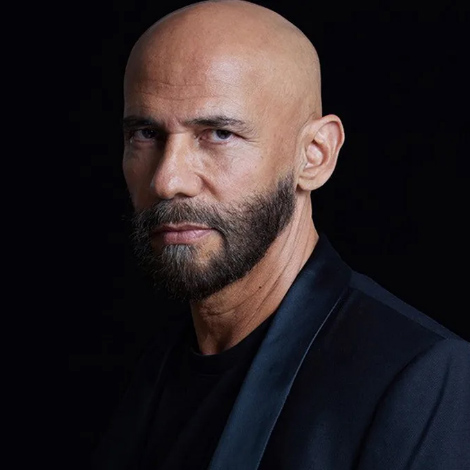
Nilo Cruz
Librettist

Nilo Cruz
Librettist
San Diego Opera debut. Cuban-American playwright Nilo Cruz gained national prominence in 2003 when he won the Pulitzer Prize for drama for his play Anna in the Tropics, for which he also received a Tony Award nomination. The immigrant experience is a common theme in many of Cruz’s plays and he has become known for his ability to successfully weave strains of magic realism and other literary traditions into his works. In addition to the Pulitzer, he has received numerous awards, including those from the Kennedy Center Fund, American Theatre Critics and the Humana Festival for New American Plays; as well as grants from the National Endowment of the Arts and the Rockefeller Foundation, among others. His plays include Dancing on Her Knees; A Park in Our House; Two Sisters and a Piano; A Bicycle Country; Hortensia and the Museum of Dreams; Lorca in a Green Dress; Beauty of the Father; Hurricane; and A Very Old Man with Enormous Wings, as well as translations of Doña Rosita the Spinster; The House of Bernarda Alba; Life Is a Dream; and ¡Ay, Carmela! His work has been seen at numerous theaters around the country including, among others, South Coast Rep, the Mark Taper Forum, the Oregon Shakespeare Festival, Washington D.C.’s Studio Theatre and New York’s Public Theater; and around the world in Canada, England, France, Australia, Germany, Belarus, Costa Rica, Colombia, Japan and Spain. As a lyricist, he is a frequent collaborator with composer Gabriela Lena Frank. He has written the libretti for The Conquest Requiem and The Santos Oratorio for Ms. Frank and the text of orchestral songs, La Centinela y la paloma. Cruz also adapted Ann Patchett’s 2001 novel Bel Canto for the Lyric Opera of Chicago, with Peruvian composer Jimmy López and recently premiered the oratorio Dreamers by López at Cal Performance in Berkeley, California. Cruz, who received an M.F.A. from Brown University and an honorary doctorate degree from Whittier College, has twice previously served as a playwright-in-residence: In 2000, for the McCarter Theatre, in Princeton, N.J., and in 2001 for the New Theatre in Coral Gables, Florida, which commissioned Anna in the Tropics. Cruz has also taught drama at Yale, Brown and the University of Iowa. During the 2019/20 academic year, he was the Hearst Theater Lab Initiative Distinguished Visiting Playwright-in-Residence at the UCLA School of Theater, Film and Television. He is a member of the New Dramatists.
Synopsis In English
Act I
A chorus of villagers gathers to await their departed loved ones on the day of the dead—they summon them by name and memory. An infirm Diego Rivera appears quietly among them, but stays apart. Villagers notice him and a few, on a dare, speak to him. They joke affectionately about the ritual, explaining that “it’s the faith in your soul” that brings back the dead, and wish him well. Diego summons up the courage to speak to Frida; he sings an aria (“come back to me”) revealing his fears and loneliness, and collapses to the ground. He confesses that he would like to accept God, and begs Frida to come “since you have never returned.” Villagers help Diego up; an old woman tries to sell him flowers. He makes a joke of it, to save his dignity, but disconcerted by her, he exits. She reveals her true identity as Catrina, Keeper of the Dead.
Catrina asks for the Lord’s mercy on Diego Rivera, and summons Frida Kahlo. Frida ascends from below, dressed plainly (not as “Frida Kahlo”), and demands to know what Catrina wants of her. She bristles at the suggestion that Diego is calling her, and tries to send Catrina packing. Catrina charges Frida with accompanying her dying husband on his journey to the underworld. This stops Frida cold.
Frida sings an aria (“The World”) about having found release in death—release from her mercurial relationship with Diego, and blessed release from agonizing pain. “Why go back to the world?” Catrina tries to persuade Frida that Diego is lost without her, but Frida challenges her, preferring her refuge of darkness and silence. Finally, Catrina implores Frida to be “an angel to Diego,” but Frida’s retort: “In my life he was a demon.”
A caravan of Departed Souls enters with bundles of fabric and clothing as they prepare for their return. They try to tempt Frida with their wares, but she declines. Catrina catches a young man trying to sneak back to the world dressed as a woman and chases him off.
Meanwhile, Frida notices a young actor, Leonardo, practicing his impression of Greta Garbo. He wants to go back as Garbo, to please a Garbo fan who waits every year for his idol. “I do it to go back to the world,” Leonardo tells Frida. “To be an actor once again.” Frida wavers for a moment, but stops herself.
Leonardo seduces Frida with the possibility of painting “a new Frida,” one “without pain, without anguish.” He dresses her up in her trademark clothes, adorning her hair with ribbons and flowers, appealing to her vanity and the pleasure she took in her art. Catrina returns, calling out the names of those who have been summoned, and readying them for departure. She calls on Frida, who continues to demur. Catrina notices Leonardo in his Garbo costume, forbidding his ruse, but Frida pleads for him, and Catrina relents.
As Catrina prepares to usher the departed out, Frida hesitates. Leonardo keeps trying to persuade her, but she says “What’s the use of going back?” At the last minute, Frida calls out to Catrina and says she wants to go back. Catrina allows it, but not before laying out the rules: 24 hours only, and no touching: “A caress can cost you the memory of pain.” As Frida walks toward the path of light, she sings “I’m coming back to you, my art.”
Act II
Diego is on a scaffold adjacent to a canvas. The canvas becomes transparent; the painting seems to come to life as the figures sing to Diego, defying his artistic abilities, expressing his decline in life, the world of politics and art. The canvas becomes opaque again, Diego wants his colors to embrace his mortality and take him to the underworld, but Diego senses Frida, and sings “Show me your Face”. As she rises from the ground, Diego says “Frida.” Her response: “Here I am, Diego. I told myself I would never come back but here I am. Diego rushes to embrace her, but she stops him. Diego thinks he is dreaming her. But she goes on to assert that she’s not a dream: “You’re not dreaming me. I am the dead painter.”
The canvas flies out as: Frida and Diego find themselves in Alameda Park, among the living and the departed souls strolling together (“To Return”). Diego is focused on Frida, and Frida on the vibrant life around her. He once again tries to embrace her, but “there are rules,” she tells him. They continue to stroll, interacting companionably with vendors. Diego keeps pressing for intimacy with Frida, which she keeps avoiding (partly because of the rules, but partly because she doesn’t want to get caught up again in the vortex of their relationship). Finally, they have this blunt exchange:
Diego: Is it you, Frida?
Frida: What is left of me.
Diego: Much is left.
Frida: Yes, all the hurt that I painted/instead of killing you
Diego: You should have killed me.
Frida: Then I would’ve had/to kill myself afterwards.
A beggar woman interrupts them, and her plea brings them out of themselves and reminds them of the wider world—particularly its injustices, which is a deep bond between them. They sing a duet (Tenochtlitán), which is not a love duet, but a hymn to the city and its broken, beautiful past. The beggar woman turns out to be Catrina. Diego notices the presence of death in her, and he is reminded of his own mortality.
Frida finds Leonardo among the people strolling in the park. He tells her he has visited Greta Garbo’s fan and has fulfilled his fantasy of meeting the movie star. Diego approaches Frida and says “Let us go home.” Diego and the chorus sing “Close your eyes” as they lead Frida back to her beloved home, which magically assembles around them. Diego invites Frida to sit beside him, but she is drawn to her easel.
Frida sings “Hand me my brush,” about wanting to return to painting, as Diego looks on. He begs her to embrace him, but she tells him she can’t. The two end with, “We made fun of love, to love one another freely.” Frida looks at him, scrutinizes his clothes, his face, his hands. Suddenly she hugs him. Frida is instantly racked by pain, and the moment becomes almost psychedelic, “The Memory of Pain”. Diego invites her to paint with him, and three Fridas appear (like her own painted images), beckoning her into the canvas. Diego and Frida enter the picture frame, creating their own alternate reality.
Frida and Diego try to cling to their impossible dream of staying together inside a painting even as the chorus of departed souls sings of the end of the Day of the Dead and prepares to return to the underworld. Catrina begins marshalling the souls, and Leonardo bids a final farewell to the world. Catrina angrily notices Frida’s absence, but keeps her procession moving.
Left alone, Frida realizes that she and Diego cannot live in a dream of art—that their art was always a response to the world. Diego is ready to die at this moment—is he about to lose Frida to Catrina. He is ready to take his chances of being with Frida in the underworld. He calls out to the God of Mictlan (God of the underworld). Catrina re-appears. “Who calls?” Diego tells her his time has come. Catrina reminds him that it’s not up to him, but Frida begs her to help him.
Catrina and Frida sing Diego toward death (“Close your Eyes”). When she senses that Diego is ready, Catrina calls out to the god of Mictlan, and Diego succumbs to his mortality.
As Frida sings that she and Diego will be united for eternity, the set opens up to reveal an Aztec pyramid and the God of Mictlan. The chorus sings of his deliverance, of the evergreen power of his paintings, and Frida and Diego whisper their names to one another, as they are united in the underworld.
Sinopsis en Español
1 Acto
Un coro de aldeanos está reunido el Día de Muertos esperando a sus amados difuntos – los llaman por su nombre y por sus recuerdos. Un Diego Rivera débil aparece silenciosamente entre ellos, pero se mantiene a distancia. Los aldeanos lo ven y algunos se retan a hablarle. Bromean afectuosamente acerca del ritual, explicándole que “es la fe en tu alma” la cual permite que regresen los muertos y le desean que este bien. Diego se arma de valor para hablar con Frida; canta una aria (regresa a mi) revelando sus miedos y su soledad y se desploma al piso. Confiesa que quisiera aceptar a Dios, y le suplica a Frida que venga “ya que jamás has regresado”. Los aldeanos lo ayudan a levantarse; una anciana trata de venderle flores. El hace bromas para salvaguardar su dignidad, pero desconcertado por la mujer, se va. La anciana revela su verdadera identidad como la Catrina, Guardian de Los Muertos.
La Catrina ruega al Señor que tenga piedad de Diego Rivera y llama a Frida Kahlo. Frida asciende desde abajo, vestida sencillamente (no como Frida Kahlo), y le exige a la Catrina que le diga lo que quiere de ella. Ella se enfurece cuando sabe que Diego la está llamado y trata de echar afuera a la Catrina. La Catrina le pide a Frida que acompañe a su moribundo esposo en su viaje hacia el inframundo. Esto deja a Frida helada.
Frida canta una aria (El Mundo) donde ha encontrado la liberación en la muerte – liberación de la volátil relación con Diego, y una bendita liberación del agonizante dolor. ¿“Por qué regresar al mundo”? La Catrina trata de persuadir a Frida diciéndole que Diego está perdido sin ella, pero Frida la desafía, prefiriendo su refugio de obscuridad y silencio. Finalmente, la Catrina le implora a Frida que sea un “ángel para Diego” pero Frida argumenta: “en mi vida él fue un demonio”.
Una caravana de Almas Difuntas entra con bultos de ropa y tela mientras se preparan para regresar. Tratan de seducir a Frida con sus objetos, pero ella los rechaza. La Catrina se da cuenta de que un joven trata de regresar a hurtadillas al mundo vestido de mujer y lo echa.
Mientras tanto, Frida ve a un joven actor, Leonardo, practicando su personificación de Greta Garbo. A él le gustaría regresar como Garbo, para complacer a un fan de Garbo que espera cada año a su ídolo. “Lo hago para regresar al mundo”, Leonardo le dice a Frida. “Para ser un actor una vez más”. Frida duda por un momento, pero se detiene.
Leonardo seduce a Frida con la posibilidad de pintar a “una nueva Frida”, una “sin dolor, sin angustia”. La viste en su ropaje característico, adornando su pelo con listones y flores, recurriendo a su vanidad y el placer que tenía por su arte. La Catrina regresa gritando los nombres de aquellos que han sido llamados y los prepara para su partida. Le llama a Frida quien continúa objetando. La Catrina ve a Leonardo con su disfraz de Garbo, prohibiéndole su treta, pero Frida aboga por él, y la Catrina cede.
Cuando la Catrina se prepara para encaminar a los difuntos fuera del mundo, Frida duda. Leonardo continúa tratando de persuadirla, pero ella le dice, ¿“de qué sirve que regrese”? En el último momento Frida le habla a la Catrina y le dice que quiere regresar. La Catrina lo permite, pero no sin antes establecer las reglas: solamente por 24 horas, y no puede tocar a nadie. “Una caricia puede costarte el recuerdo del dolor”. Mientras Frida camina hacia el camino de la luz, canta “Regreso a ti, mi arte”.
2 Acto
Diego está en un andamio junto a un lienzo. El lienzo se vuelve transparente; la pintura cobra vida en tanto que las figuras le cantan a Diego, desafiando sus habilidades artísticas, expresando su deterioro en la vida, el mundo de la política y el arte. El lienzo se vuelve opaco de nuevo, Diego quiere que sus colores acojan su inmortalidad y lo lleven al inframundo, pero Diego presiente a Frida, y canta: “muéstrame tu cara”. Cuando ella surge de la tierra, Diego dice “Frida”. Su respuesta es: “Aquí estoy Diego. Me había prometido nunca regresar, pero heme aquí”. Diego corre a abrazarla, pero ella lo detiene. Diego piensa que la está soñando. Pero ella continúa aseverando que no es un sueño: “No me estás soñando. Soy la pintora muerta”.
El lienzo vuela hacia fuera al mismo momento que: Frida y Diego se encuentran en el Parque de la Alameda entre los vivos y las almas de los difuntos todos juntos caminando (“Regresar”). Diego enfoca su atención en Frida y Frida en la dinámica vida a su alrededor. Una vez más trata de abrazarla, pero “hay reglas” ella le dice. Ellos continúan paseándose e interactuando afablemente con los vendedores. Diego continúa presionando para tener un acercamiento intimo con Frida, el cual ella sigue evitando (en parte por las reglas, pero también porque no quiere caer otra vez en el torbellino de su relación). Finalmente, tienen este franco dialogo:
Diego: ¿Eres tú Frida?
Frida: Lo que queda de mí.
Diego: Todavía hay mucho.
Frida: Si, todo el dolor que pinté en vez de matarte
Diego: Deberías haberme matado.
Frida: Entonces hubiera tenido que matarme después.
Una limosnera los interrumpe y sus suplicas los saca de ellos mismo y les recuerda el extenso mundo – particularmente sus injusticias, lo cual es algo que los une profundamente. Cantan un dueto (Tenochtitlán), el cual no es un dueto amoroso, pero un himno a la ciudad y su roto y hermoso pasado. La limosnera no es otra que la Catrina. Diego nota la presencia de la muerte en ella, y el recuerda su propia mortalidad.
Frida encuentra a Leonardo entre la gente que se pasea en el parque. Él le dice que ha visitado al fan de Greta Garbo y que ha cumplido con su fantasía de conocer a la artista de cine. Diego se acerca a Frida y le dice: “vámonos a casa”. Diego y el coro cantan “cierra tus ojos” mientras guían a Frida de regreso a su amada casa, la cual mágicamente se arma a su alrededor. Diego invita a Frida a que se siente cerca de él, pero ella es atraída por su caballete.
Frida canta “pásame mi pincel”, queriendo regresar a pintar, mientras Diego la mira. El le suplica que lo abrace, pero ella le dice que no puede. Los dos terminan con, “nos burlamos del amor, amándonos uno a otro libremente”. Frida lo ve escudriñando su ropa, su cara, sus manos. De repente ella lo abraza. Frida inmediatamente se dobla del dolor, y el momento se vuelve casi psicodélico, “el recuerdo del dolor”. Diego la invita a pintar con él y tres Fridas aparecen (como su propia imagen pintada), atrayéndola hacia el lienzo. Diego y Frida penetran en el marco del cuadro, creando su propia realidad alterna.
Frida y Diego tratan de aferrarse a su sueño imposible de quedarse juntos dentro de una pintura al mismo tiempo que el coro de almas de los difuntos canta acerca del final del Dia de los Muertos y se preparan para regresar al inframundo.
La Catrina empieza a reunir a las almas, y Leonardo ofrece su último adiós al mundo. La Catrina enfurecida nota la ausencia de Frida, pero continúa avanzando a su procesión.
Ya sola, Frida se da cuenta que ella y Diego no pueden vivir en un sueño de arte—que su arte siempre fue una respuesta al mundo. Diego está listo para morir en este momento –está a punto de perder a Frida con la Catrina. Está listo para probar su suerte y estar con Frida en el inframundo. El apela al Dios Mictlān (El Dios del Inframundo). La Catrina reaparece. “¿Quién llama?” Diego le dice que su momento ha llegado.
La Catrina y Frida van cantándole a Diego hacía la muerte (Cierra tus ojos). Cuando siente que Diego está listo, La Catrina le habla al Dios Mictlān y Diego sucumbe a su mortalidad.
Mientras Frida canta que Diego y ella estarán unidos hasta la eternidad, el escenario se abre para mostrar una pirámide azteca y al Dios Mictlān. El coro canta su salvación, por el perenne poder de sus pinturas, y Frida y Diego murmuran el uno a otro sus nombres, a la vez que se encuentran unidos en el inframundo.
Corporate Sponsors








